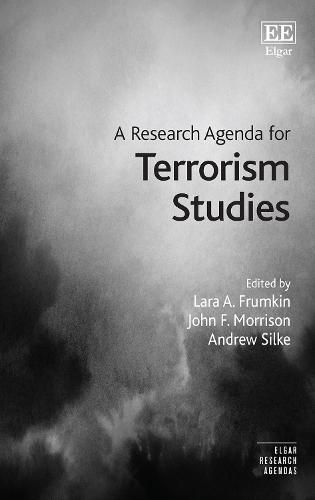Readings Newsletter
Become a Readings Member to make your shopping experience even easier.
Sign in or sign up for free!
You’re not far away from qualifying for FREE standard shipping within Australia
You’ve qualified for FREE standard shipping within Australia
The cart is loading…






Elgar Research Agendas outline the future of research in a given area. Leading scholars are given the space to explore their subject in provocative ways, and map out the potential directions of travel. They are relevant but also visionary.
Asking vital questions concerning the future directions of terrorism research, this topical Research Agenda dives into the current state, emerging methodologies and key trends of this emotive and controversial field.
Structured in four distinct sections, the book initially explores the major perspectives in terrorism studies research, before taking a theoretical approach to assess its methodologies including ethnography, interviews, social media and databases. Using a broad range of case studies, the book then tackles the major debates and controversies facing terrorism research today, including gender issues, the private sector, and ethics. Exploring the strengths, weaknesses and policy and practice impacts of this research, the book concludes with a forward-thinking look at the future directions terrorism studies can and should take.
Taking an interdisciplinary approach to this challenging research area, this timely book will prove vital to students and scholars studying terrorism, counterterrorism, security and conflict, alongside counterterrorism policymakers looking to innovate their future policies.
$9.00 standard shipping within Australia
FREE standard shipping within Australia for orders over $100.00
Express & International shipping calculated at checkout
Elgar Research Agendas outline the future of research in a given area. Leading scholars are given the space to explore their subject in provocative ways, and map out the potential directions of travel. They are relevant but also visionary.
Asking vital questions concerning the future directions of terrorism research, this topical Research Agenda dives into the current state, emerging methodologies and key trends of this emotive and controversial field.
Structured in four distinct sections, the book initially explores the major perspectives in terrorism studies research, before taking a theoretical approach to assess its methodologies including ethnography, interviews, social media and databases. Using a broad range of case studies, the book then tackles the major debates and controversies facing terrorism research today, including gender issues, the private sector, and ethics. Exploring the strengths, weaknesses and policy and practice impacts of this research, the book concludes with a forward-thinking look at the future directions terrorism studies can and should take.
Taking an interdisciplinary approach to this challenging research area, this timely book will prove vital to students and scholars studying terrorism, counterterrorism, security and conflict, alongside counterterrorism policymakers looking to innovate their future policies.